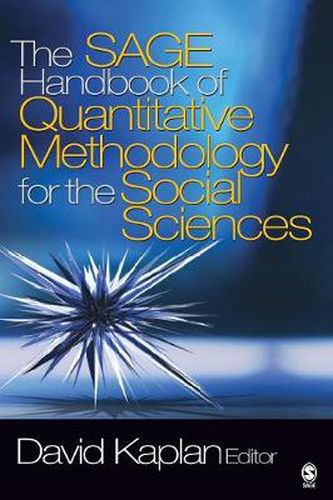Readings Newsletter
Become a Readings Member to make your shopping experience even easier.
Sign in or sign up for free!
You’re not far away from qualifying for FREE standard shipping within Australia
You’ve qualified for FREE standard shipping within Australia
The cart is loading…






Quantitative methodology is a highly specialized field, and as with any highly specialized field, working through idiosyncratic language can be very difficult made even more so when concepts are conveyed in the language of mathematics and statistics. The Sage Handbook of Quantitative Methodology for the Social Sciences was conceived as a way of introducing applied statisticians, empirical researchers, and graduate students to the broad array of state-of-the-art quantitative methodologies in the social sciences. The contributing authors of the Handbook were asked to write about their areas of expertise in a way that would convey to the reader the utility of their respective methodologies. Relevance to real-world problems in the social sciences is an essential ingredient of each chapter. The Handbook consists of six sections comprising twenty-five chapters, from topics in scaling and measurement, to advances in statistical modelling methodologies, and finally to broad philosophical themes that transcend many of the quantitative methodologies covered in this handbook.
$9.00 standard shipping within Australia
FREE standard shipping within Australia for orders over $100.00
Express & International shipping calculated at checkout
Quantitative methodology is a highly specialized field, and as with any highly specialized field, working through idiosyncratic language can be very difficult made even more so when concepts are conveyed in the language of mathematics and statistics. The Sage Handbook of Quantitative Methodology for the Social Sciences was conceived as a way of introducing applied statisticians, empirical researchers, and graduate students to the broad array of state-of-the-art quantitative methodologies in the social sciences. The contributing authors of the Handbook were asked to write about their areas of expertise in a way that would convey to the reader the utility of their respective methodologies. Relevance to real-world problems in the social sciences is an essential ingredient of each chapter. The Handbook consists of six sections comprising twenty-five chapters, from topics in scaling and measurement, to advances in statistical modelling methodologies, and finally to broad philosophical themes that transcend many of the quantitative methodologies covered in this handbook.